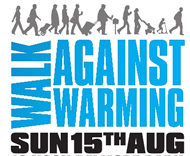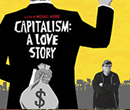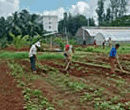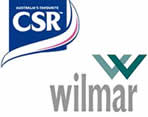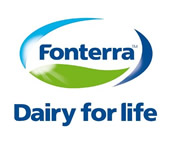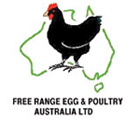Update. August 2010
Walk the talk ...
| With a federal election looming, there's lots of talk about what's important. Help put climate change and the wider impacts of our lifestyles on the agenda, and encourage our government and fellow politicians to do their bit to make a safe future for all of us. | |
|
Walk
Against Warming 2010
- Sunday 15 August Find out
more for events in your state at Walk with the people, not the big polluters. |
|
This Thursday ... join us for a love story
|
Michael Moore's movie, Capitalism: A love story will be screening at our next 'Meal & Movie' night, on this coming Thursday evening. We now have 'Meal & Movie' nights running in Melbourne on the 2nd Thursday of each month in the west, and also the 3rd Friday of each month in the east. Let us know if you'd like to host a regular night in your local area. >> Dinner 6.30 - 7.30pm - byo 'food and thoughts' to share >> movie 8pm - 10.30pm. |
|
|
|
| Thursday
12th August - Capitalism:
A love story |
|
| Next month - 9th September - screening The End of Suburbia, focus on peak oil. |
|
| Out East - Wendy's place, Blackburn | |
| Friday
20th August, Power of Community:
How Cuba Survived Peak Oil |
|
|
Next month - 17th September - screening King Corn, a road movie about subsidised food >> Find out more about Meal & Movie nights |
|
Palm Oil News....
|
Who is Wilmar? Wilmar International Ltd is a Singapore-based agribusiness and is the world's largest palm oil trader. Wilmar owns over 500,000 hectares of land - mainly in Indonesia, with the majority of this yet to be cleared for palm plantations. Wilmar has been criticised for illegally logging rainforests and violating the rights of local communities in Indonesia. more Wilmar is also presently being investiged regarding tax payments more . Wilmar buys
CSR Sugar Fonterra
criticisied |
|
Free Range Eggs - in the spotlight ...
|
|
In the light of a recent article in the Age (27th June) outlining suggested changes to the definition of free-range eggs lifting the maximum number of hens in a per hectare area from 1,500 to up to 20,000, I thought it would be good to give some comparison of the present labelling of eggs in relation to hen welfare. | ||
Cage Eggs Hens are housed in battery cages. This is the production method for convential egg farming. The current minimum space allocation for caged birds is 450cm2 floor space per bird (less than the size of a piece of A4 paper). With on average 3- 5 birds per cage, this equals about 18 hens per square metre.The small size of cages means that birds are unable to turn around easily, stretch out, flap their wings or exercise. Cages do not satisfy the hen’s behavioural need to perch, dust bathe, forage, and lay their eggs in a secluded nest. Beaks are trimmed to prevent canabilism. In 2008, the European Union announced a ban on conventional battery cages to come into effect from 2012.(Directive 1999/74/EC). This will mean 'Enriched' cages must allow at least 750 cm2 per hen, and contain a nest, litter, perch and clawing-board. This is equal to 9 hens per square metre. |
|||
|
|
Barn-laid Eggs Hens are housed in a large barn or shed, which contains perching facilities, litter, nest boxes, feeders and drinkers. Most barns have around one-third of the floor space covered with litter that allows for scratching and dust bathing. Flocks may be small (500 birds) or large (5000 birds or more). Conventional barns house 12-15 hens per square metre.. The RSPCA-accredited barn-housed hens ('Choose Wisely' branding) house 7 hens per square metre. Free-range eggs In Australia, there is presently no binding legal definition for 'free -range', only voluntary standards. The understanding is that Free-range eggs come from hens that have access to an outdoor area during the day, and at night are kept in sheds or barns. Three voluntary certifications that have documented standards are:
|
||
>If
you're wanting to buy 'Free-Range' with hen welfare in mind, look
for FREPA or Certified Organic. |
|||
Our news ....
|
Shop Ethical! iPhone app v1.2 The first major update of our popular Shop Ethical! iPhone app has just been released. This is a free update for all Shop Ethical! owners. The Ethical Consumer Guide joins facebook Come and join the conversation at our new facebook page. www.facebook.com/ethicalshopper
|
Upcoming workshops ...

|
Thursday
19 August, 7.30 - 9.30pm >> Sustainable Shopping presentation,
Kew East Register online here . |
Get the Guide!
- pocket guide, iphone app, hemp bags - www.ethical.org.au/orders
See news and print guide updates at www.ethical.org.au/news
Find out what's being Twittered
at http://twitter.com/ethicalshopper
To view this newsletter online go to www.ethical.org.au/newsletters/august2010.htm

